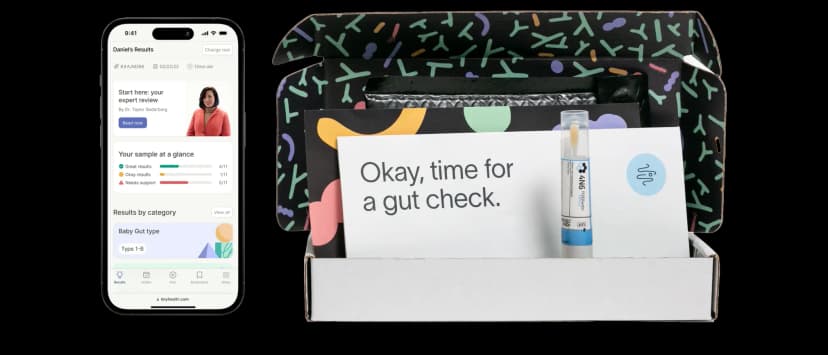Ever heard the saying "go with your gut"? It turns out, this advice isn't just for making decisions—it's also key for your health. Your gut is home to trillions of bacteria, known as the gut microbiome, which play a big role in your overall well-being. They help with digestion, nutrient absorption, and even your immune system. To keep these beneficial bacteria thriving, you need to feed them the right nutrients. That's where gut-friendly recipes come in. Packed with fiber, probiotics, and anti-inflammatory ingredients, these meals can help you maintain a healthy gut. Let's dive into some delicious recipes that are as good for your taste buds as they are for your tummy.
Key Takeaways
- A healthy gut microbiome is essential for digestion, nutrient absorption, and immune function.
- Foods rich in fiber, probiotics, and anti-inflammatory properties support gut health.
- Breakfast options like overnight oats and smoothie parfaits are great for starting your day with gut-friendly nutrients.
- Lunch and dinner recipes such as miso-glazed salmon and lentil soup can provide balanced meals that promote gut health.
- Incorporating fermented foods and reducing processed foods can help maintain a healthy gut microbiome.
Understanding the Gut Microbiome
The Role of Gut Bacteria in Health
Your gut is home to trillions of bacteria, collectively known as the gut microbiome. These tiny organisms play a crucial role in digestion, nutrient absorption, and immune function. A healthy gut microbiome can even influence your mood and mental health. By breaking down food, these bacteria help produce essential vitamins and short-chain fatty acids that keep your gut lining healthy.
Factors Affecting Gut Microbiome Balance
Several factors can impact the balance of your gut microbiome:
- Diet: Consuming a variety of fiber-rich foods supports a diverse microbiome.
- Antibiotics: These can kill beneficial bacteria, disrupting the balance.
- Stress: High stress levels can negatively affect gut health.
- Sleep: Poor sleep can also impact the gut microbiome.
Benefits of a Healthy Gut Microbiome
A balanced gut microbiome offers numerous health benefits:
- Improved Digestion: Helps break down food more efficiently.
- Enhanced Immune Function: Supports the body's defense mechanisms.
- Better Mental Health: Linked to reduced anxiety and depression.
- Weight Management: Aids in maintaining a healthy weight.
Maintaining a healthy gut microbiome is essential for overall well-being. By paying attention to your diet and lifestyle, you can support your gut health and enjoy these benefits.
Key Nutrients for Gut Health
Importance of Fiber
Fiber is essential for a healthy gut. It helps keep your digestion regular and feeds the good bacteria in your gut. Eating plenty of fruits, vegetables, grains, and legumes can provide the fiber your body needs.
Role of Probiotics and Prebiotics
Probiotics are the good bacteria that live in your gut, while prebiotics are the food that these bacteria eat. Foods rich in probiotics include yogurt, miso paste, and kimchi. Prebiotics can be found in garlic, onions, and bananas. Combining these foods can maximize their benefits.
Anti-inflammatory Foods
Anti-inflammatory foods help reduce inflammation in the gut, which is crucial for maintaining gut health. Foods like turmeric, ginger, fatty fish, and leafy greens are excellent choices. Including these in your diet can help keep your gut in top shape.
A balanced diet rich in fiber, probiotics, prebiotics, and anti-inflammatory foods can significantly improve your gut health. Make sure to include a variety of these nutrients in your meals to support a healthy microbiome.
Gut-Friendly Breakfast Ideas
Overnight Oats with Berries and Flaxseed
Start your day with a bowl of overnight oats. Oats are rich in prebiotic fiber, which helps feed the good bacteria in your gut. Add some berries and flaxseed for an extra boost of fiber and antioxidants. Simply mix oats with your choice of milk, top with berries and flaxseed, and let it sit in the fridge overnight.
Quinoa Breakfast Bowl with Nuts and Fruits
Switch up your breakfast routine with a quinoa bowl. Quinoa is a whole grain that's high in fiber and protein. Cook the quinoa and top it with a variety of nuts and fruits. This combination not only tastes great but also provides a balanced meal that supports gut health.
Smoothie Parfait with Greek Yogurt
A smoothie parfait is a delicious and easy way to get probiotics into your diet. Greek yogurt is packed with live cultures that are beneficial for your gut. Layer the yogurt with your favorite smoothie ingredients like bananas, berries, and a handful of granola for a crunchy texture. This parfait is not only tasty but also great for your digestive system.
Lunch and Dinner Recipes for a Healthy Gut
Miso-Glazed Salmon with Vegetables
This dish combines the rich flavors of miso with the health benefits of salmon. Miso, a fermented soybean paste, is packed with probiotics that support gut health. Salmon is rich in omega-3 fatty acids, which help reduce inflammation. Serve with a side of steamed vegetables for a complete meal.
Chickpea and Vegetable Stir-Fry
Chickpeas are a fantastic source of fiber and protein, making them a great addition to any meal. This stir-fry includes a variety of colorful vegetables, providing a range of vitamins and minerals. The fiber in chickpeas helps to keep your digestive system running smoothly.
Lentil and Spinach Soup
Lentils are another excellent source of fiber and protein. This hearty soup also includes spinach, which is rich in vitamins and minerals. The combination of lentils and spinach makes for a nutrient-dense meal that supports a healthy gut. Add some garlic and onions for extra flavor and gut benefits.
Eating a variety of whole, unprocessed foods is key to maintaining a healthy gut. These recipes are designed to provide the nutrients your gut needs to thrive.
Snacks and Sides to Boost Gut Health
Homemade Sauerkraut
Making your own sauerkraut is a simple way to add probiotics to your diet. This fermented cabbage dish is rich in beneficial bacteria that support gut health. Add it to salads, sandwiches, or enjoy it on its own.
Roasted Garlic and Tomato Toast
This savory snack combines the prebiotic power of garlic with the antioxidant benefits of tomatoes. Simply roast garlic cloves and spread them on whole-grain toast, then top with fresh tomato slices. It's a delicious way to support your gut.
Cucumber Kimchi
Cucumber kimchi is a quick and easy way to enjoy the benefits of fermented foods. Packed with garlic and ginger, this spicy side dish not only adds flavor but also helps maintain a healthy balance of gut bacteria. Serve it alongside your favorite meals for an extra probiotic boost.
Including fermented foods like sauerkraut and kimchi in your diet can significantly improve your gut health by increasing the diversity of beneficial bacteria.
Delicious Desserts for Gut Health
Banana and Flaxseed Muffins
These muffins are not only tasty but also packed with gut-friendly ingredients. Bananas provide prebiotic fiber, which helps feed the good bacteria in your gut. Flaxseeds add an extra boost of fiber and omega-3 fatty acids, promoting overall digestive health. Enjoy these muffins as a healthy snack or a quick breakfast option.
Chia Seed Pudding with Berries
Chia seeds are a powerhouse of fiber and omega-3s, making them excellent for gut health. When soaked, they form a gel-like consistency that is easy to digest. Top the pudding with a variety of berries, which are rich in antioxidants and fiber. This dessert is not only delicious but also incredibly nutritious.
Dark Chocolate Avocado Mousse
This creamy mousse combines the richness of dark chocolate with the smooth texture of avocado. Dark chocolate is high in antioxidants, while avocados provide healthy fats and fiber. Together, they create a dessert that is both indulgent and beneficial for your gut. It's a perfect way to satisfy your sweet tooth while supporting your digestive system.
Tips for Maintaining a Gut-Friendly Diet
Incorporating Fermented Foods
Fermented foods are a fantastic way to boost your gut health. They are rich in probiotics, which are beneficial bacteria that help maintain the balance of your gut microbiome. Examples include yogurt, kefir, sauerkraut, and kimchi. Try to include at least one serving of fermented food in your daily diet.
Reducing Processed Foods
Processed foods often contain additives, preservatives, and high levels of sugar and unhealthy fats, which can negatively impact your gut health. Aim to minimize your intake of processed foods and instead focus on whole, unprocessed foods like fruits, vegetables, whole grains, and lean proteins.
Staying Hydrated
Adequate hydration is crucial for good digestion and overall gut health. Drinking enough water helps in the digestion of fiber and keeps things moving smoothly in your digestive tract. Aim for at least 8 glasses of water a day to keep your gut happy.
Remember, the key to a gut-healthy diet is balance and listening to your body. By incorporating these tips, you can enjoy the full benefits of these gut-friendly recipes and enhance your overall health and well-being.
Conclusion
Incorporating gut-friendly recipes into your diet is a simple yet effective way to support your overall health. By choosing meals rich in probiotics, prebiotics, and fiber, you can help your gut microbiome thrive. These beneficial bacteria play a crucial role in digestion, nutrient absorption, and even your immune system. So, whether you're enjoying a hearty vegetable soup, a refreshing smoothie, or a savory miso dish, remember that you're not just feeding yourself—you're nourishing the trillions of microbes that keep you healthy. Start adding these delicious recipes to your meal plan today, and your gut will thank you!
Frequently Asked Questions
What is the gut microbiome?
The gut microbiome is a community of trillions of bacteria and other microorganisms living in your digestive system. These tiny organisms help with digestion, nutrient absorption, and keeping your immune system strong.
Why is fiber important for gut health?
Fiber is essential for gut health because it feeds the good bacteria in your gut. It helps keep your digestive system running smoothly and can prevent issues like constipation.
What are probiotics and prebiotics?
Probiotics are beneficial bacteria that help keep your gut healthy. Prebiotics are types of fiber that feed these good bacteria. Together, they support a balanced gut microbiome.
How can I include more fermented foods in my diet?
You can add more fermented foods to your diet by eating yogurt, kefir, sauerkraut, kimchi, and miso. These foods are rich in probiotics, which help maintain a healthy gut.
What should I avoid for a healthy gut?
To keep your gut healthy, try to avoid processed foods, sugary snacks, and fried foods. These can harm the balance of bacteria in your gut and lead to digestive problems.
How does staying hydrated help my gut?
Drinking plenty of water is important for digestion and helps your body process fiber more effectively. Staying hydrated keeps everything moving smoothly in your digestive system.
























